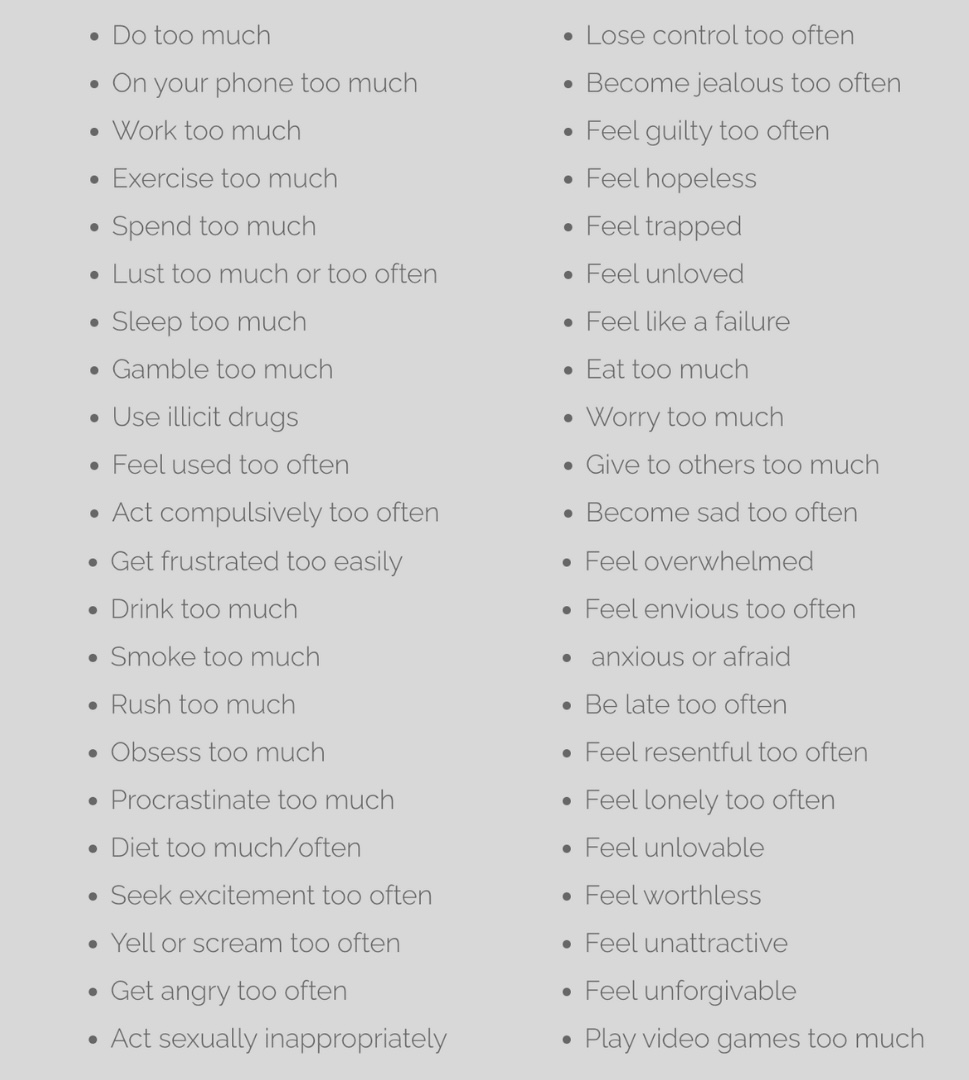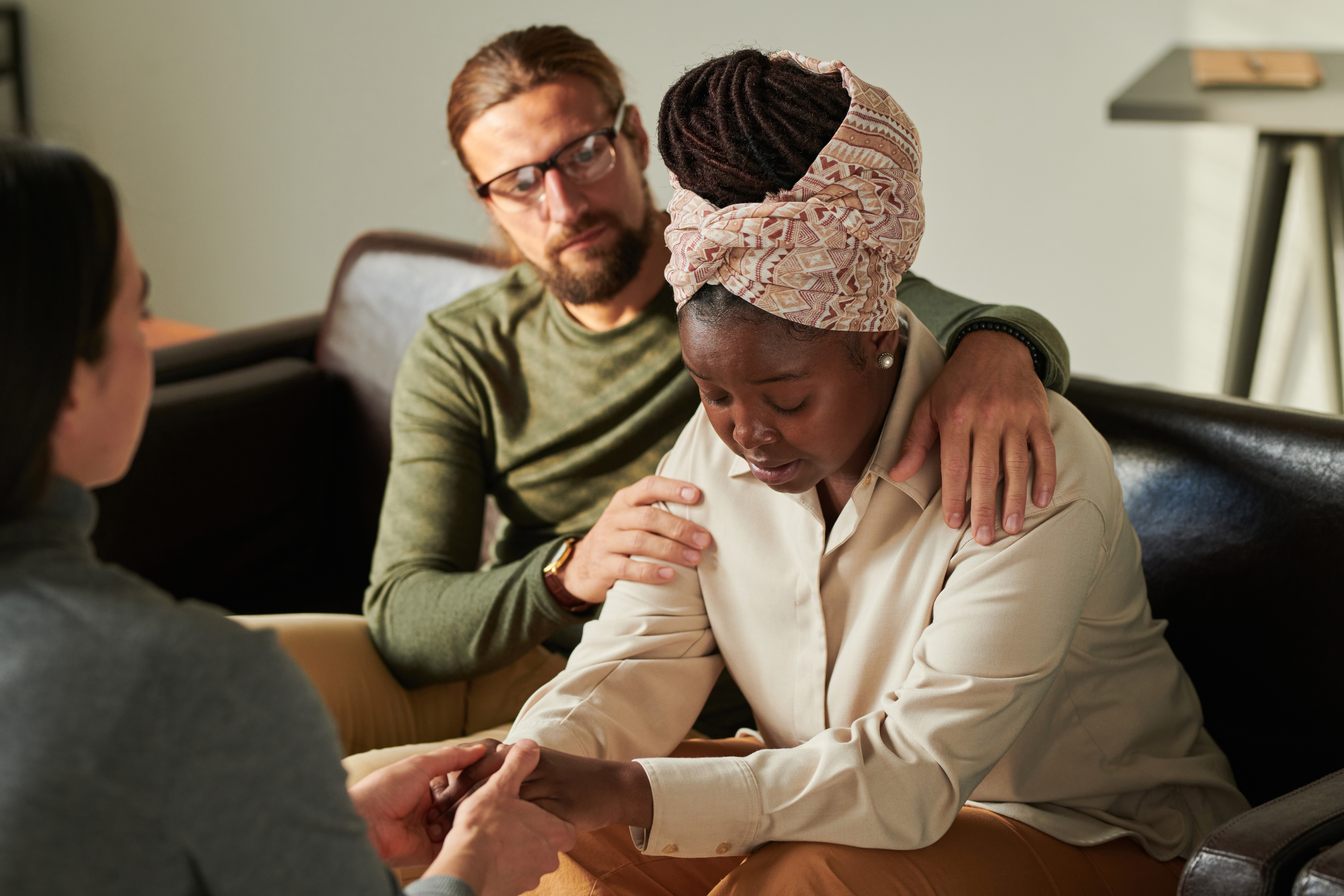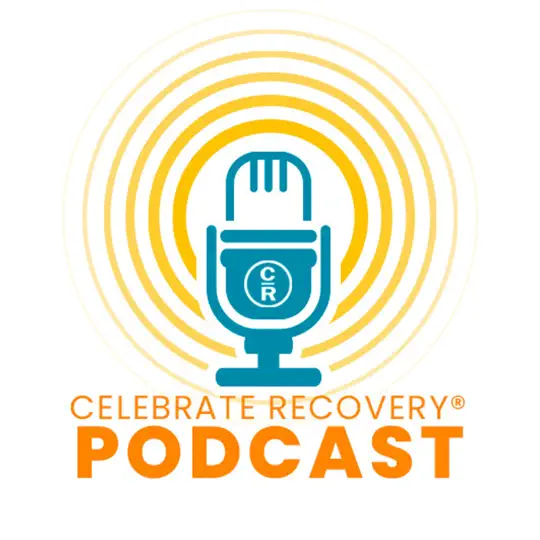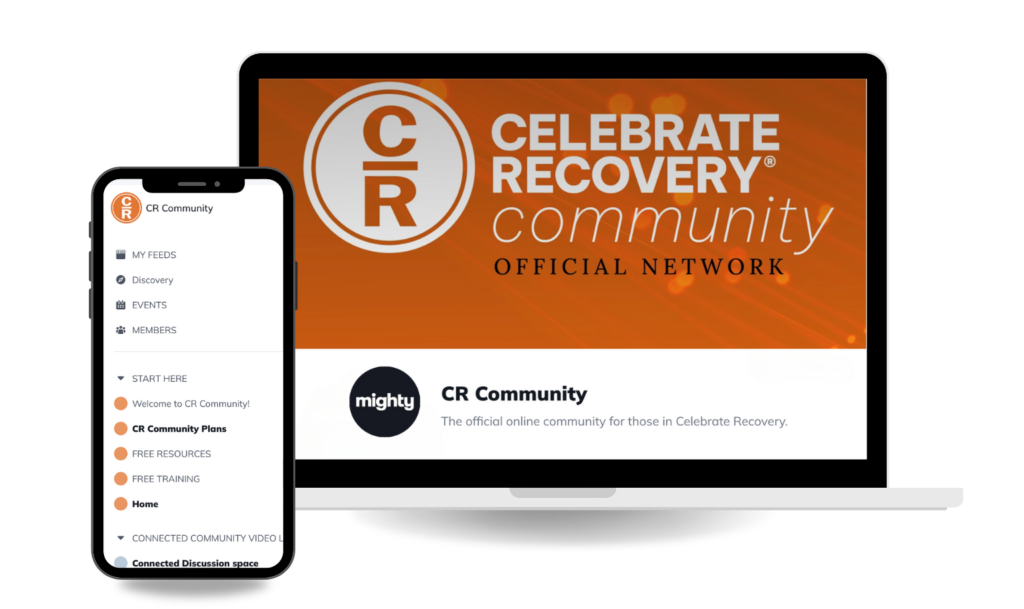
Celebrate Recovery
Are you ready to break free from life’s hurts, hang-ups, and habits? Celebrate Recovery is a place of healing, transformation, and renewal! Through Biblical principles and Christ-centered guidance, you’ll discover hope, build deeper relationships, and step into the life God has for you.
Your journey to freedom starts today!

Ask yourself whether you or someone you are in a close relationship with may:

Are you or someone you know struggling with…
Anger
Exploring the Issue of Anger
There is a plan and a purpose for anger in our lives. Anger is one of our 10 basic God-given emotions and there are constructive ways to deal with and express anger. For many of us, anger is the primary way we choose to express emotions. Therefore, anger is an issue that must be managed. We must learn to recognize our unhealthy patterns of anger and the emotions and circumstances that push us to become destructively angry.
For us, anger is a “misdirection,” a hang-up that we have developed to mask hurt or fear. At it’s core, our anger is an intent to preserve our personal worth, essential needs or basic convictions.
We may feel intense shame and guilt over the actions we have committed during our unhealthy expressions of anger. We vow never to act that way again, only to find ourselves back in the same situations, unable to change it by our own power.
Characteristics of Someone Struggling with Anger Issues may include, but are not limited to:
- I have to raise my voice to get my point across.
- I become impatient easily when things do not go according to my plans.
- When I am displeased with someone, I may shut down any communication with them or withdraw entirely.
- I am annoyed easily when others don’t appear sensitive to my needs or convictions.
- I do not easily forget when someone “does me wrong”
- When someone confronts me with a misinformed opinion, I am thinking of my comeback while they are speaking.
- When I am forced to deal with emotions or circumstances that I do not want, I become resentful.
- I become annoyed when others don’t hold themselves to the same standards that I hold myself to.
- I often use sarcasm and humor to communicate a point.
- People take me seriously when I am “aggressive.”
- I may act kindly toward others on the outside, yet feel bitter and frustrated on the inside.
- I find myself overreacting to minor incidents.
How We Find Recovery
Through a relationship with Jesus Christ as Savior and Higher Power, and by working through the 8 recovery principles and the Christ-centered 12 steps, we can find freedom from our hurts, hang ups and habits.
Characteristics of Someone in Recovery for Anger Issues may include, but are not limited to:
- We have accepted Jesus Christ as our Higher Power.
- Working the 12 step recovery process diligently and consistently.
- We are learning that Jesus can be trusted.
- We are shifting our focus from ourselves and our desires to serve God and others.
- We are learning to take more personal responsibility for our actions and emotions.
- We are learning to “take a pause” before reacting.
- We have learned to recognize unhealthy patterns of anger in our lives.
- We have shared those patterns and “triggers” with at least one other person and are accountable to them for how we deal with them.
- We are learning to deal with our anger quickly.
- Ephesians 4:26, “In your anger do not sin; do not let the sun go down on your anger.”
- We are becoming more comfortable expressing our more vulnerable emotions like fear, hurt, rejection, and insecurity.
Adult Children of Family Dysfunction
Exploring the Issue of Adult Children of Family Dysfunction
Did you grow up in a family or home where one or more of the caregivers struggled with addiction, compulsions, co-dependency or other unhealthy behaviours? Was your home filled with conflict, neglect, or anxious systems?
Often, children from dysfunctional families think the systems they grew up in are normal and may be unaware of the adverse effects.
Adult children of Family Dysfunction often create survival skills from childhood, such as isolation, perfectionism, and family peacemaker, which then become habits or hang-ups as adults.
Characteristics of an Adult Child of Family Dysfunction may include but are not limited to:
- We suffer from a lack of self-confidence or low self-esteem.
- We have difficulty trusting others.
- We have difficulty acknowledging or expressing emotion as an adult, having learned how to repress painful or confusing emotions as a child.
- We have to guess what is normal, having grown up in a dysfunctional home.
- We have spent time taking care of others while neglecting our own needs.
- We lived in anxiety, walking on eggshells, waiting for the other shoe to drop.
- We struggled with unexplained anger, rage, and sadness.
- We have difficulty following through on a project because of a struggle to concentrate and focus.
- We manage time poorly and do not set priorities in a way that works effectively for us.
- We have difficulty forming healthy adult relationships.
- We judge ourselves harshly, especially when things did not go perfectly.
- We are prone to addiction to alcohol or drugs, self-harm, or self-destructive behaviour.
- We are either extremely responsible or irresponsible brought on by a lack of good example growing up.
- We overreact to change.
- We get angry frequently or easily and tend to isolate.
- We constantly seek approval and affirmation.
- We had to grow up too soon and lose childlike qualities of innocence due to having to take on major responsibilities at an early age.
How We Find Recovery
Through a relationship with Jesus Christ as Savior and Higher Power, and by working the 8 recovery principles and the Christ-centered 12 steps, we can find freedom from our hurts, hang ups and habits.
Characteristics of an Adult Child of Family Dysfunction in Recovery May Include but are not limited to:
- Accept Jesus Christ as Higher Power
- Work the 12 step recovery process diligently and consistently. We recognize we are powerless to heal from the damaged emotions resulting from our childhood.
- We come to believe that we matter to God and He loves us asHis child.
- We look to God and His Word to find our identity as worthwhile and loved human beings.
- We learn that the emotions we are feeling are very real and need to be acknowledged.
- We learn how to organize our emotions. First by noticing them, then honoring them, organizing them, and sharing them with God and at least one other person.
- We learn to offer forgiveness to those who have hurt us and make amends for harm we’ve done to others.
- We gradually release the burden of unexpressed grief, slowly move out of the past, and no longer allow it to control us.
- We can set clear limitations and boundaries.
- Become an adult who is no longer imprisoned by childhood reactions.
- We are willing to mature in our relationship with God and others.
- We come to believe that God won’t waste the hurt in our lives.
In our recovery, we become willing to be used by God to bring hope to others with similar struggles.
Chemical Dependency
Exploring the Issue of Chemical Dependency
Have you ever thought you have a problem with drinking alcohol or using drugs? If so, you may have tried to quit on your own and found that while you can gain some level of sobriety, freedom from the compulsion to use your drug of choice has been elusive. At Celebrate Recovery we know that a relationship with Jesus Christ as our Higher Power can set us free.
Characteristics of someone struggling with Chemical Dependency may include, but are not limited to:
- I drink or use in excess to get drunk or high on a regular basis.
- I feel powerless to stop using my drug of choice.
- I tell myself that I will quit, but I never follow through.
- My addiction causes pain to myself and to those around me.
- My use has cost me close friends, key relationships, jobs, or other important parts of my life because I have made my drug of choice the most important thing in my life.
- Using used to be fun, but now it is something I feel like I need to do just to get by.
- I get angry when loved ones tell me I have a problem.
- I try to hide my addiction from others.
- I think that if I could find the right amount, combination, or drug of choice, my problems would go away.
- I feel convicted that I have a problem, but I try to push that feeing away in order to protect my addiction.
How We Find Recovery
Through a relationship with Jesus Christ as Savior and Higher Power, and by working through the 8 recovery principles and the Christ-centered 12 steps, we can find freedom from our hurts, hang ups and habits.
Characteristics of someone in recovery for Chemical Dependency may include, but are not limited to:
- Accept Jesus Christ as Higher Power
- Working the 12 step recovery process diligently and consistently.
- Doing the work to sustain sobriety, or abstinence from drugs and alcohol.
- Attending recovery meetings regularly.
- Developing a support team of a sponsor and accountability partners.
- Intentionally praying and doing the work to restore and develop stronger relationships.
- Growing closer to Jesus as we work through the 8 principles to find His healing power from all of our hurts, hang ups and habits while turning to Him for lasting comfort that cannot be found in a drink or drug.
Learning how to serve others out of the freedom we are finding.
Codependency
Exploring the Issue of Co-Dependency
Co-dependency is when a person’s need for approval or validation from another person allows them to be controlled or manipulated, or a person who attempts to manipulate or control someone. They are willing to compromise their own values, choices, and behavior at the expense of their personal well-being.
Characteristics of someone struggling with co-dependency may include, but are not limited to:
- Assuming responsibility for other’s feelings and behaviors.
- Feeling guilty about other’s feelings and behaviors.
- Having difficulty identifying or expressing one’s own feelings.
- Minimizing, altering, or denying how one truly feels.
- Worrying about how others may respond to your feelings, opinions, and behavior.
- Valuing others opinions and feelings more than your own.
- Living with messages of not being good enough, valued, or loved.
- Fear of expressing different opinions or feelings from those of others.
- Fear of being hurt and/or rejected by others.
- Compromising one’s own beliefs, values, and integrity to avoid other’s rejection or anger.
- Over-functioning to be needed, valued, or loved.
- Tolerating mistreatment or abuse from others while justifying their behavior and trying to defend them.
- Overly caring for others at the expense of one’s own self needs; feeling victimized and “used” as a result.
- Anxiety in saying “no” to someone, even when saying “yes” would be at great inconvenience.
- Directly or indirectly attempting to fix, manage, or control another person’s problems to help them avoid feeling bad or experiencing the consequences of their choices.
- Judging everything you think, say, or do harshly, as never being “good enough.” A perfectionist at heart.
- Feels conflicted by a desire to be needed and resentment for feeling obligated in serving others.
- Being extremely loyal, to the point of remaining in harmful situations too long.
- Feels bound in relationships by performance (what I do) rather than core value and worth (who I am).
- Avoids conflict with other people to the point of being unable to speak true feelings or asking for valid needs to be met.
How We Find Recovery
Through a relationship with Jesus Christ as Savior and Higher Power, and by working through the 8 principles and the Christ-centered 12 steps, we can find freedom from our hurts, hang ups and habits.
Characteristics of someone in recovery for codependency may include but are not limited to:
- Accept Jesus Christ as Higher Power.
- Working the 12 step recovery process diligently and consistently.
- Accepting and walking in the biblical truth that our identity and value are who we are in Christ, and not based on how others view us, what we do, or the service we perform.
- Learning to recognize and enforce healthy boundaries that accurately establish where we end and another person begins. Not allowing others to compromise those boundaries.
- Learning how to help others in suitable ways, without rescuing or fixing, allowing them to act independently, allowing them to own the results of their choices and behaviour.
- Performing acts of service as a choice, not out of duty or for recognition and value from others. Serving with joy using God-given talents and abilities.
- Learning to live a balanced life where self-care and taking responsibility for our own health and well-being take priority over the addictive behaviour and control of others.
Food and Body Image
Exploring Food and Body Image Issues
An unhealthy relationship with food and/or our bodies begins and continues for many different reasons. Food may be used as a coping mechanism to ease negative feelings, emotions, and circumstances, to have control in one area of our chaotic life, or to change our body to fit an imagined standard that will bring fulfillment, peace, and acceptance.
We may be living a double life, secretly acting out, ashamed of our lack of control, our bodies, our destructive and irrational behaviors. We may rationalize our behaviors, justifying our unhealthy relationship with food as “health conscious.” We may jeopardize our relationships, health, jobs, morals, and values to continue in our self-destructive behaviors.
Characteristics of Someone Struggling with Food and Body Image Issues, May Include But Are Not Limited To:
- Inability to discern when physically hungry or physically full
- Excessive or compulsive consumption of food (bingeing) and/or getting rid of food (purging)
- Self-induced starvation, excessive use of laxatives, enemas, “diet” pills, or medications for weight loss
- Excessive and/or unhealthy weight loss
- Obsession with body weight and shape
- Spending the majority of your day thinking about food, when you’ll eat, what you’ll eat, how your body looks, how much you weigh, etc.
- Belief there is one or more perfect diet, program, plan, pill, or exercise that will be “the answer”
- Low self-esteem and/or negative body image
- Emotional disconnect from self, others, and God
How We Find Recovery
Through a relationship with Jesus Christ as Savior and Higher Power, and by working through the 8 recovery principles and the Christ-centered 12 steps, we can find freedom from our hurts, hang ups, and habits.
Characteristics of Someone in Recovery for Food and Body Image Issues May Include but Are Not Limited To:
- Accept Jesus Christ as higher power
- Working the 12-step recovery process diligently and consistently
- Shifting our worship from food and our bodies to God
- Finding healthy coping mechanisms for negative feelings, emotions, and circumstances
- Developing a healthy identity and positive self-worth that comes from God, not our bodies or others
- Learning to love ourselves as God loves us, so knowing we are worth the work it takes for Him to heal us
- Emotionally connecting with God, self, and others and developing safe relationships
- Viewing food as fuel for our body, and as something that God gave us to enjoy
- Learning and listening to our body’s cues for hunger, fullness, and what foods to eat
- Discerning the difference between physical and emotional hunger
- Decreasing obsession with food and body, replaced with self-acceptance, contentment, peace, and fulfillment from God
- Developing a balanced, healthy approach to food and health
- Healing our distorted beliefs about food, ourselves, or our bodies
Gambling Addiction
Exploring the issue of Gambling Addiction
If, when you honestly want to, you find you cannot quit gambling entirely, or if you have little control over the amount you bet, you are probably a compulsive gambler. A compulsive gambler is described as a person whose gambling has caused growing and continuing problems in any department of his or her life.
Characteristics of someone struggling with a gambling addiction may include, but are not limited to:
- My gambling makes me careless of the welfare of myself and/or my family.
- I have borrowed money, sold possessions, and/or committed an illegal act to finance gambling.
- After losing I felt the need to return as soon as possible and win back my losses or after a win had a strong urge to return and win more.
- I have lost time at work, school, home, and with friends to gamble.
- At times, I have been defensive about my gambling and justified my right to gambling, especially when trying to escape worry or stress.
- I was trapped in the illusion of “just one more time.” Or “this time it will be different.”
- When I did seek help I was only looking for the pain to go away.
- My track record shows that it is impossible for me to gamble in any form.
How We Find Recovery
Through a relationship with Jesus Christ as Savior and Higher Power, and by working through the 8 recovery principles and the Christ-centered 12 steps, we can find freedom from out hurts, hang ups and habits.
Characteristics of someone in recovery for gambling addiction may include, but are not limited to:
- Accept Jesus Christ as Higher Power.
- Working the 12 step recovery process diligently and consistently.
- Living without gambling one day at a time with the help of the Higher Power, Jesus Christ.
- Staying away from that first bet. If there isn’t a first one, there cannot be a 10th one. And when free of gambling, life becomes much more manageable.
- Experiencing the true peace and serenity you have been seeking.
- Restoring and developing stronger relationships with God and with others.
- Stop relying on dysfunctional, compulsive, and addictive behaviors as a temporary “fix” for pain.
- Learning how to serve others out of the freedom you are finding.
Love and Relationship Addiction
Exploring the Issue of Love and Relationship Addiction
For most women with unhealthy love and relationship addiction, we are dealing with depression, isolation, and a lack of trust. Unhealthy use of love and relationships is used as a means of achieving worth.
Characteristics of Someone Struggling with Love and Relationship Addiction may include, but are not limited to:
- Lack of nurturing and attention when young
- Feeling isolated, detached from parents and family
- Mistake intensity for intimacy
- Hidden pain
- Seek to avoid rejection and abandonment at all cost
- Afraid to trust anyone in a relationship
- Inner rage over lack of nurturing, early abandonment
- Depressed
- Manipulative and controlling of others
- Perceive attraction, attachment, and sex as basic human needs, as with food and water
- Sense of worthlessness
- Escalating tolerance for high-risk behavior
- Presence of other addictive or compulsive problems
- Using others to alter mood or relieve pain
- Existence of secret “double life”
- Defining “wants” as “needs”
- Use fantasy or unhealthy relationships to escape painful feelings or reality
- Unrealistic or unhealthy expectations with our spouse
How We Find Recovery
Through a relationship with Jesus Christ as Savior and Higher Power, and by working through the 8 recovery principles and the Christ-centered 12 steps, we can find freedom from our hurts, hang ups and habits.
Characteristics of Someone in Recovery for Love and Relationship Addiction may include, but are not limited to:
- Accept Jesus Christ as Higher Power
- Working the 12 step recovery process diligently and consistently.
- Shifting our worship from our sexuality to God.
- Finding healthy coping mechanisms for negative feelings, emotions, and circumstances.
- Developing a healthy identity and positive self-worth that comes from God, not our bodies or others.
- Learning to love ourselves as God loves us, so knowing we are worth the work it takes for Him to heal us.
- Emotionally connecting with God, self, and others, and developing safe relationships.
- Identify difference between healthy and unhealthy relationships with others.
- Not engaging in sex with self, phone sex, cyber sex, pornography, fantasy, or a sexual relationship outside of marriage.
- Seeking a biblical definition of healthy sexuality.
- Become willing to experience grief, forgiveness, and acceptance.
- Discerning the difference between physical “need” and “want”
- Avoid cross over addictions; i.e. food/alcohol/drugs
- Identify triggers
- Avoid people, places, and things that tempt us to act out.
- In our recovery, we become willing to be used by God to bring hope to others with similar struggles.
Mental Health
Exploring Mental Health
Fifty percent of all adults will experience some form of mental health issue in their life. [Centers for Disease Control and Prevention] This can mean different things to different people. Ultimately, the list of the different types of disorders is too large for one informational sheet.
Celebrate Recovery is...
- ...a safe and loving place for those seeking to find support in the midst of a mental health issue or dual diagnosis.
- ...willing to support mental health through Christ-centered accountability and sponsorship.
- ...a safe place to work through all of life’s hurts, hang-ups, and habits believing that freedom in Christ is something that can be complete even without physical healing.
What we are not.
- A place for judgment.
- A replacement for counseling and therapy.
- A place that gives up on HOPE!
Characteristics of someone struggling with Mental Health may include, but are not limited to:
- An ongoing condition that affects mood, behaviors, and thinking
- patterns which may cause suffering and/or may interfere with a
- person's ability to function with typical daily activities on a frequent
- Just like any other organ in our body, our brains are subject to
- malfunction from time to time. In the same way that a heart, lung, or
- kidney can malfunction, our brains can malfunction. This can lead to
- feelings of devastation, anger, or loneliness, for example. Often the
- result is a feeling of isolation, loss of control, and hopelessness.
- Frequently, to ease these overwhelming emotions, people will use
- unhealthy coping skills. This can be through unhealthy relationships,
- at-risk behaviors, substance abuse, etc.
Characteristics of someone recovery with Mental Health may include, but are not limited to:
Celebrate Recovery cannot promise physical healing from your mental health issues, no more than it can promise healing from cancer. What we can offer you is this:
Through the loving grace of Jesus Christ, we do not have to live under the assumption that we have no hope.
In 2 Corinthians 12:9 (NIV) we see God telling us, “My grace is sufficient for you, for my power is made perfect in weakness.” This tells us that when we are feeling weak, God steps in to fill the gap for us if we let Him.
Celebrate Recovery is a tool to help us experience the freedom that comes when we allow God to stand in the gap for us. Utilizing the 12 Steps of Recovery and their biblical comparisons, along with the 8 Principles based on the Beatitudes, we allow God to work in our lives.
In Step 3, “We made a decision to turn our lives and our wills over to the care of God.” When we stop trying to get by under our own power and give that control over to God, we start living under His power. His “perfect power” offers healing and hope from life’s hurts, hang-ups, and habits.
God gives us the ability to come out of the darkness that weighs so heavily on us.
We can feel what it is like to walk through life with hope for a better tomorrow.
We can start building relationships with others that are healthy.
We learn positive tools for coping with frustrations and then incorporate these tools into our lives.
Living with mental health issues can be difficult. There is no denying that fact. Living with mental health issues does not have to be a lifelong sentence of misery. You do have hope for a better tomorrow. By living one day at a time, one moment at a time, you can find peace. You can live a life that is extraordinary.
Mixed Issues
Exploring Recovery
After attending our Newcomers 101 group you may still be struggling to find the right Open Share Group for you. (The goal of Newcomers 101 is to explain how Celebrate Recovery works and to help you find an Open Share Group.)
You may have looked through our group descriptions and not found a group that specifically meets your recovery needs.
You may have looked through our group descriptions and decided that you could be in any of them. You are unsure where exactly to start.
You may feel most comfortable starting your recovery journey around others with “mixed issues”…
However, at some point we believe there is power in being able to “name” your specific issue. Consider joining a step study, if one is available, to help you dig in to your recovery and to help you identify the core issue you are struggling with.
If you feel overwhelmed because you identify with more than one issue, we always recommend you start your recovery journey with the issue that is causing you, or others, the most pain right now.
How We Find Recovery
Attend our mixed issues group! We are so glad to have you join us. This is a group that will help you address and begin the healing process for your hurt, hang-up, or habit. Your struggle is important to us, and we look forward to walking with you on your unique recovery journey.
Through a relationship with Jesus Christ as Savior and Higher Power, and by working through the 8 recovery principles and the Christ-centered 12 steps, we can find freedom from our hurts, hang ups and habits.
Physical/Sexual/Emotional Abuse Men
Exploring the Effects of Physical, Sexual and Emotional Abuse for Men
RECOVERY IS A TWO FOLD PROCESS in this case. The first step is healing from the traumas done to us in our past, and the second step is healing from the influence these past experiences continue to have on our present.
Characteristics Of Someone Struggling With The Effects Of Physical, Sexual, And/Or Emotional Abuse May Include, But Are Not Limited To:
- Are hesitant to identify themselves as victims of abuse
- Feel isolated, depressed, worthless, and helpless to change
- Are struggling with feelings about God in relation to their life experiences of abuse
- Condemn themselves, denying the past abuse affects their present circumstances
- Feel out of control and defeated in areas of compulsive behavior
- Feel angry, bitter, and rebellious; have trouble with authority figures
- Feel a lack of self-worth and low self-esteem.
- Are preoccupied with thoughts of what it means to have a “normal” relationship with others: mates, friends, family.
- Question their own sexual identity and may experience confusion regarding their own sexuality
- Desire to regain their sexuality and feel safe in intimate relationships
- Question self-reality: “Who am I?”
- Question whether life has a purpose
- Feel “at home” in crisis situations
- Struggle with perfectionism or “all or nothing thinking”
- Desire to have victory through Christ over the life experience of abuse
How We Find Recovery
Through a relationship with Jesus Christ as Savior and Higher Power, and by working through the 8 recovery principles and the Christ-centered 12 steps, we can find freedom from our hurts, hang ups and habits.
Characteristics Of Someone In Recovery From Physical, Sexual, And/Or Emotional Abuse May Include, But Are Not Limited To:
- We recognize that we are powerless to heal the damaged emotions resulting from our abuse. We look to God for the power to make us whole.
- We understand that safety is a high priority and will remove ourselves from any unsafe
- We come to believe that we matter to God and He loves us as His
- We admit that God’s plan for our lives includes victory over the experience of
- We understand that the abuse committed against us is not our fault. We are NOT
- We understand that the people who abused us are responsible for the abusive acts committed against us. We will not accept the guilt and shame resulting from those abusive
- We look to God and His Word to find our identity as worthwhile and loved human
- We learn that the emotions we are feeling are very real and need to be acknowledged.
- We learn how to organize our emotions by first noticing them, honoring them, organizing them, and sharing them with God and at least one other
- We don’t accept responsibility for the abuse itself but do accept the responsibility for our responses to the
- We are wiling to accept God’s help in the decision and the process of forgiving ourselves and those who have perpetrated against
- We come to understand that releasing our offender to God allows us to move forward toward the healing
- We come to understand that forgiveness does not necessarily mean reconciliation with my
- We are willing to mature in our relationships with God and others.
- We come to believe that God won’t waste the hurt in our
- In our recovery, we become willing to be used by God to bring hope to others with similar
Physical/Sexual/Emotional Abuse Women
Exploring the Effects of Physical, Sexual and Emotional Abuse
RECOVERY IS A TWO FOLD PROCESS in this case. The first step is healing from the traumas done to us in our past, and the second step is healing from the influence these past experiences continue to have on our present.
Characteristics of Someone Struggling with the Effects of Physical, Sexual, and/or Emotional Abuse may include, but are not limited to:
- Are hesitant to identify themselves as victims of abuse.
- Feel isolated, depressed, worthless, and helpless to change.
- Are struggling with feelings about God in relation to their life experiences of abuse.
- Condemn themselves, denying the past abuse affects their present circumstances.
- Feel out of control and defeated in areas of compulsive behavior.
- Feel angry, bitter, and rebellious; have trouble with authority figures.
- Feel a lack of self-worth and low self-esteem.
- Are preoccupied with thoughts of what it means to have a “normal” relationship with others: mates, friends, family.
- Question their own sexual identity and may experience confusion regarding their own sexuality.
- Desire to regain their sexuality and feel safe in intimate relationships.
- Question self-reality: “Who am I?”
- Question whether life has a purpose.
- Feel “at home” in crisis situations.
- Struggle with perfectionism or “all or nothing thinking.”
- Desire to have victory through Christ over the life experience of abuse.
How We Find Recovery
Through a relationship with Jesus Christ as Savior and Higher Power, and by working through the 8 recovery principles and the Christ-centered 12 steps, we can find freedom from our hurts, hang ups and habits.
Characteristics of Someone in Recovery From Physical, Sexual, And/Or Emotional Abuse May Include, but Are Not Limited To:
- We recognize that we are powerless to heal the damaged emotions resulting from our abuse. We look to God for the power to make us whole.
- We understand that safety is a high priority and will remove ourselves from any unsafe situation.
- We come to believe that we matter to God and He loves us as His child.
- We admit that God’s plan for our lives includes victory over the experience of abuse.
- We understand that the abuse committed against us is not our fault. We are NOT GUILTY.
- We understand that the people who abused us are responsible for the abusive acts committed against us. We will not accept the guilt and shame resulting from those abusive acts.
- We look to God and His Word to find our identity as worthwhile and loved human beings.
- We learn that the emotions we are feeling are very real and need to be acknowledged.
- We learn how to organize our emotions by first noticing them, honoring them, organizing them, and sharing them with God and at least one other person.
- We don’t accept responsibility for the abuse itself but do accept the responsibility for our responses to the abuse.
- We are wiling to accept God’s help in the decision and the process of forgiving ourselves and those who have perpetrated against us.
- We come to understand that releasing our offender to God allows us to move forward toward the healing process.
- We come to understand that forgiveness does not necessarily mean reconciliation with my offender.
- We are willing to mature in our relationships with God and others.
- We come to believe that God won’t waste the hurt in our lives.
- In our recovery, we become willing to be used by God to bring hope to others with similar struggles.
Physical/Sexual/Emotional Abuse - 12 Steps
STEP ONE - We admit we are powerless over the past, and as a result, our lives have become unmanageable.
STEP TWO - Believe God can restore us to wholeness, and realize this power can always be trusted to bring healing and wholeness in our lives.
STEP THREE - Make a decision to turn our lives and our wills to the care of God, realizing we have not always understood His unconditional love. Choose to believe He does love us, is worthy of trust, and will help us to understand Him as we seek His truth.
STEP FOUR - Make a searching and fearless moral inventory of ourselves, realizing all wrongs can be forgiven. Renounce the lie that the abuse was our fault.
STEP FIVE - Admit to God, to ourselves, and to another human being, the exact nature of the wrongs in our lives. This will include those acts perpetrated against us, as well as those wrongs we perpetrated against others.
STEP SIX - By accepting God’s cleansing, we can renounce our shame. Now we are ready to have God remove all these character distortions and defects.
STEP SEVEN - Humbly ask Him to remove our shortcomings, including our guilt. We release our fear and submit to Him.
STEP EIGHT - Make a list of all persons who have harmed us and become willing to seek God’s help in forgiving our perpetrators, as well as forgiving ourselves. Realize we’ve also harmed others and become willing to make amends to them.
STEP NINE - Extend forgiveness to ourselves and to others who have perpetrated against us, realizing this is an attitude of the heart, not always confrontation. Make direct amends, asking forgiveness from those people we have harmed, except when to do so would injure them or others.
STEP TEN - Continue to take personal inventory as new memories and issues surface. We continue to renounce our shame and guilt, but when we are wrong, promptly admit it.
STEP ELEVEN - Continue to seek God through prayer and meditation to improve our understanding of His character. Praying for knowledge of His truth in our lives, His will for us, and for the power to carry that out.
STEP TWELVE - Having a spiritual awakening as we accept God’s love and healing through these steps, we try to carry His message of hope to others. Practice these principles as new memories and issues surface, claiming God’s promise of restoration and wholeness.
*Throughout this material, you will notice several references to the Christ-centered 12 Steps. Our prayer is that Celebrate Recovery will create a bridge to the millions of people who are familiar with the secular 12 Steps (I acknowledge the use of some material from the 12 Suggested Steps of Alcoholics Anonymous) and in so doing, introduce them to the one and only true Higher Power, Jesus Christ. Once they begin that relationship, asking Christ into their hearts as Lord and Savior, true healing and recovery can begin!
Sexual Addiction for Men
Exploring the Issue of Sexual Addiction for Men
Our lust often begins as an overpowering desire for pleasurable relief. We may be running from an inner pain, loneliness, emptiness, or an insecurity, and find that sex is the best way to cope. Lust, pornography, sex with ourselves or with others can briefly dissolve tension. It can momentarily relieve depression, resolve conflict, and even provide the means to escape from or deal with life’s seemingly unbearable situations.
However, that pleasure often brings with it more tension, depression, rage, guilt, and even physical distress. The cycle continues as we try to relieve this new pain, leading to more sex, pornography and lust. We live in denial in order to avoid recognizing just how much our addiction controls our life. As we continue in our self destructive behaviors, sexual addiction jeopardizes our relationships, health, jobs, morals and values. Ultimately, sexual addiction takes the place of God in our lives as a coping mechanism to deal with life’s hardships.
Characteristics of Someone Struggling with Sexual Addiction may include, but are not limited to:
- Engaged in promiscuity and illicit relationships.
- Engaged in sex with self, phone sex, cybersex, pornography, sex outside of marriage, hook ups
- Living a double life
- Jump from relationship to relationship
- Always looking for the “perfect” relationship to fulfill wants
- Use sexual acts as a way to cope or escape.
- Pursuit of sex has harmed or destroyed your marriage relationship
- Unable to limit or stop acting out
- Cannot resist sexual images
- Feel guilty after acting out
- Legal issues from a sexual offense
- Denies the sexual addiction is a problem
- Escalating tolerance for high risk behavior
How We Find Recovery
Through a relationship with Jesus Christ as Savior and Higher Power, and by working the 8 recovery principles and the Christ-centered 12 steps, we can find freedom from our hurts, hang ups and habits.
Characteristics of Someone in Recovery for Sexual Addiction may include, but are not limited to:
- Accept Jesus Christ as Higher Power
- Working the 12 step recover process diligently and consistently.
- Shifting our worship from our sexuality to God.
- Finding healthy coping mechanisms for negative feelings, emotions, and circumstances.
- Developing a healthy identity and positive self worth that comes from God, not our bodies or others.
- Learning to love ourselves as God loves us, so knowing we are worth the work it takes for Him to heal us.
- Emotionally connecting with God, self, and others, and developing safe relationships.
- Not engaging in sex with self, phone sex, cybersex, pornography, or a sexual relationship outside of marriage.
- Seeking a biblical definition of healthy sexuality.
- Become willing to experience, grief, forgiveness, and acceptance.
- Discerning the difference between physical “need” and “want”
- Avoid cross over addictions; i.e. food/alcohol/drugs/codependency
- Avoid people, places, and things that tempt us to act out.
- In our recovery, we become willing to be used by God to bring hope to others with similar struggles.
Sexual Addiction for Women
Exploring the Issue of Sexual Addiction for Women
As women, sexual addiction is unique. We rationalized our sexual behaviors. As we lived a double life, we became disconnected from reality making true intimacy with another impossible. We carried this behavior from relationship to relationship and even into our marriages.
We have learned to numb our feelings and to cope with our inadequacies by reaching out for a cure that would ultimately destroy us. This in effect defined our belief system in a way that was not in line with God’s plan for sexuality. Eventually, our behaviors resulted in losing relationships, our marriages, jobs, and material possessions and in some cases, our children.
Characteristics of Someone Struggling with Sexual Addiction may include, but are not limited to:
- Engaged in promiscuity and illicit relationships
- Engaged in sex with self, phone sex, cybersex, pornography, sex outside of marriage, hook-ups
- Engaged in exotic dancing, escort services or prostitution
- Perceive attraction, attachment, and sex as basic human needs, as with food and water
- Jeopardized our morals and our relationships
- Lived a double life
- Lacks self-worth
- Fears intimacy
- Feels abandoned
- Need to be in control
- Escalating tolerance for high-risk behavior
- Defining “wants” as “needs”
How We Find Recovery
Through a relationship with Jesus Christ as Savior and Higher Power, and by working the 8 recovery principles and the Christ-centered 12 steps, we can find freedom from our hurts, hang ups and habits.
Characteristics of Someone in Recovery for Sexual Addiction may include, but are not limited to:
- Accept Jesus Christ as Higher Power
- Working the 12 step recover process diligently and consistently.
- Shifting our worship from our sexuality to God.
- Finding healthy coping mechanisms for negative feelings, emotions, and circumstances.
- Developing a healthy identity and positive self worth that comes from God, not our bodies or others.
- Learning to love ourselves as God loves us, so knowing we are worth the work it takes for Him to heal us.
- Emotionally connecting with God, self, and others, and developing safe relationships.
- Not engaging in sex with self, phone sex, cybersex, pornography, or a sexual relationship outside of marriage.
- Seeking a Biblical definition of healthy sexuality.
- Become willing to experience, grief, forgiveness, and acceptance.
- Discerning the difference between physical “need” and “want”
- Avoid cross over addictions; i.e. food/alcohol/drugs/codependency
- Avoid people, places, and things that tempt us to act out.
- In our recovery, we become willing to be used by God to bring hope to others with similar struggles.

Do you have a hurt, hang-up, or habit? Do you want to change? Answer the following questions:
- Do you believe, or want to believe in God, yet can’t seem to?
- Do you want to trust God with your whole life, yet live in fear?
- Is serenity only an ideal; seldom experienced?
- Does life feel overwhelming?
- Are your relationships clouded by conflict and confusion?
- Do you have resentments, anger, fear or loneliness?
- Do you have persistent feelings of low self-worth, shame, guilt?
- Do you have recurring pain about relationships and life in general?
- Have you tried to change your behaviours without success?
- Have you tried to change the behaviours of people around you?
- Do those you try to “help” not cooperate?
- Do you feel angry or hurt, asking, ”Why do they resent me”?
- Do your prayers for God’s help feel unanswered?
- Have you kept your secret pain secret?
- Are you realizing you don’t have the needed power?
- Are you lacking spiritual resources to overcome the pain?
- Do you have a difficulty and want to change?
If you answered yes to any of these questions, explore how Celebrate Recovery may help you experience freedom.
Plan Your Visit
Monday 7:00 PM | Faith City Church | 6225 Summit Street
Email us at celebraterecovery@faithhalifax.org for more details.

PODCAST
The CR Official Podcast shares life change stories, courage, hope, and leadership wisdom centered around the Celebrate Recovery principles. Come along for the Journey!
You can access CELEBRATE RECOVERY OFFICIAL PODCAST by clicking the link below:

Celebrate Recovery App
With the Celebrate Recovery App, you get access to FREE helpful CR resources like
Free Trainings including:
How to start an Open Share Group Only Celebrate Recovery
Issue Pamphlets
8 Principles
Small Group Guidelines
Serenity Prayer
DNA of Celebrate Recovery

The CR Team

Celebrate Recovery Men’s Ministry Leader
Andre is dedicated to Christian 12 step recovery, and sharing the love of Christ.
Taking part in and applying the Celebrate Recovery 8 principles and 12 steps in his own recovery has transformed Andre’s life, spiritual walk, marriage, and important relationships.
Since 2019 Andre has lead and taught the 8 principles and 12 steps of recovery to dozens of fellow believers.
Andre sees the growth and freedom that other participants experience in Celebrate Recovery as an honour and blessing.

Celebrate Recovery Women’s Ministry Leader
Since she was a young adult Laurie has been on a recovery journey. By the grace of God, she has overcome addiction, codependency, and mental health challenges. It is her desire to inspire hope and extend grace to others.
In her journey, Laurie has found solace in sharing her story, believing that vulnerability and authenticity are the keys to breaking the stigma surrounding mental health and addiction.
Her commitment to helping others has led her to become a leader, where she offers a compassionate and empathetic ear to those in their own battles.
